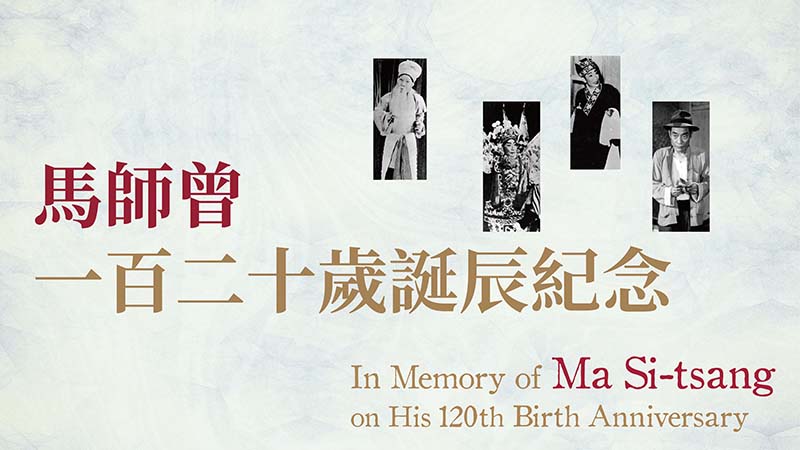
Morning Matinee — In Memory of Ma Si-tsang on His 120th Birth Anniversary
Introduction
Ma Si-tsang (1900-1964) was a key figure in Cantonese opera and cinema during the 1930s. From 1933 to 1941, his rivalry with Sit Kok-sin (1904-1956) was dubbed ‘Sit-Ma Duel', at once publicised and cherished in Guangzhou and Hong Kong. Its battle front extending from stage to film, the competition resulted in great artistic manifestations. Due to his headstrong and forthright character, Ma Si-tsang's life was full of ups and downs, which however inspired his creativity and his deft portrayal on stage and in film.
The Archive selected 18 films to pay tribute to this master on the 120th anniversary of his birth. In particular, the film series will highlight Ma Si-tsang's ingenious fusion of the operatic acting style of different roles, his compelling portrayal of characters from all walks of life, as well as his unique vocal style.
Biographical Sketch
Raised in a learned family, Ma Si-tsang grew up studying Confucian classics, acting in civilised drama and attending Cantonese opera performances. Signed into indenture, his operatic ambition was reduced to servitude and playing minor roles in a Singaporean troupe. Eventually regaining freedom, he roamed as a vagrant and took up jobs from school teacher, shopkeeper, rickshaw coolie, herb-medicine vendor, miner, and mortuary caretaker.
He reached stardom with the opera Bitter Phoenix, Sorrowful Oriole (1924), blending the physical comedy of Charlie Chaplin with traditional opera performance, establishing a vocal style entitled Tramp Canto (aka beggar vocal style or Ma vocal style).
From 1933 to 1941, Ma entrenched himself at the Tai Ping Opera Troupe and became the sole challenger of Sit Kok-sin, the superstar of Cantonese opera and film of the time. The nine-year rivalry was known as the ‘Sit-Ma Duel'. In 1955, Ma left Hong Kong for Guangzhou after he divorced Hung Sin Nui.
Ma was named the founding director of the Guangdong Institute of Cantonese Opera in 1958. His masterpieces of this period included The Lost Kite and Guan Hanqing, both were adapted into films respectively in 1957 and 1960. Ma died in Beijing on 21 April 1964 of tracheal cancer. Ma had starred in over 430 operas and made 50 films throughout his life, his art preserved in a number of films.
Audience can gain a better appreciation of this master through the exhibition at the 1/F Foyer of Hong Kong Film Archive which takes a respective look of Ma's film career and his life off-screen.
The contents of the programme do not represent the views of the presenter. The presenter reserves the right to change the programme should unavoidable circumstances make it necessary.

